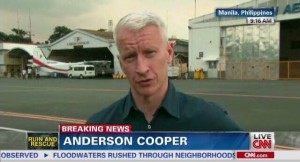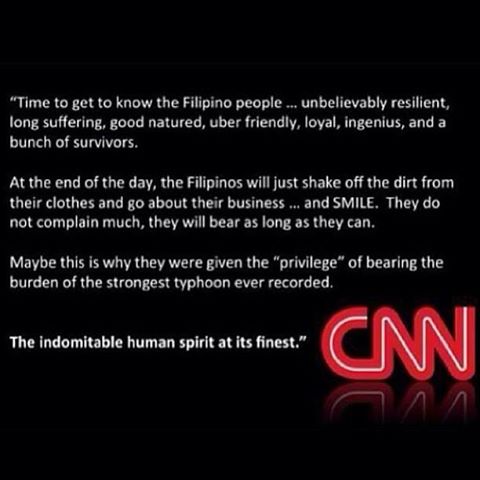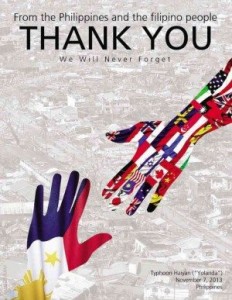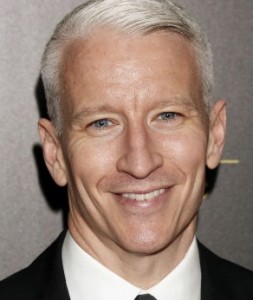Anderson Cooper’s accuracy was not the issue
While the responses to CNN anchor Anderson Cooper’s live reports from Tacloban have been overwhelmingly positive, a few netizens have taken to criticizing him for engaging in “parachute journalism”, defined as the practice of thrusting a foreign journalist into a war zone to report on a breaking news story, reports which generally display “ignorance of contextual issues.”
Such was the criticism leveled against Cooper by ABS-CBN commentator Korina Sanchez who chided him on her morning radio talk show for reporting that “there is no government presence in Tacloban”. Cooper bristled at the charge. “I never said that,” Cooper insisted. “Obviously I have been on the ground in Tacloban for days and I’ve seen the work that’s being done and the work that isn’t being done, perhaps even as importantly,” he added.
“Accuracy is what we care about here in CNN”, Cooper asserted, “giving information that might actually help people on the ground, help the relief effort become more efficient.”
Anderson Cooper is perhaps the most trusted journalist in the US today. He is not just any regular run-of-the-mill anchor. As he explained in an interview, “I think the notion of traditional anchor is fading away, the all-knowing, all-seeing person who speaks from on high. I don’t think the audience really buys that anymore. As a viewer, I know I don’t buy it. I think you have to be yourself, and you have to be real and you have to admit what you don’t know, and talk about what you do know, and talk about what you don’t know as long as you say you don’t know it”.
Cooper may not buy it but boatloads of his Filipino fans are prepared to see him as “the all-knowing, all-seeing person who speaks from on high.” At the risk of offending them, I will express my criticism of some of Cooper’s commentary.
On at least three occasions that I watched, Cooper compared the Philippine government’s inadequate response to the disaster with how Japan dealt with the Tsunami disaster in March of 2011. “When I was in Japan, right after the tsunami there two years ago, within a day or two, you had Japanese defense forces going out, carving up cities into grids and going out on foot looking for people, walking through the wreckage. We have not seen that here in any kind of large-scale operation,” Cooper said.
Cooper further noted that unlike Japan, there were no Philippine government rescue operations to seek out survivors buried in the typhoon’s rubble who might still be saved. “I didn’t even see any dogs”, Cooper said with exasperation referring to dogs trained to sniff the presence of human life.
The unfair comparison Cooper made may suggest to viewers is that human life is precious in Japan while of little or no value in the Philippines.
While Cooper was simply stating the facts as he saw them, it would also have been accurate for Cooper to explain that Tokyo is only 185 miles from Fukushima by land. while Manila is 530 miles by sea. The infrastructure of Japan, a First World country, allowed first responders from all over the main island of Honshu to quickly drive to Fukushima to help deal with the crisis there, including the task of picking up and disposing of the dead bodies in the streets. In contrast, there are no land bridges that connect Manila with Leyte so one can only travel to Leyte by plane. Cooper had to wait 24 hours in Manila before the Tacloban airport could be safely reopened for his plane to land, which was 5 days after Yolanda struck Leyte.

Geraldine also noted Cooper’s unfair comparison of the Philippines and Japan in her Facebook post. She urged Anderson Cooper to “put things into their proper perspective. If America, which was hit by Hurricane Katrina, a far tamer weather disturbance in comparison to Supertyphoon Yolanda, struggled as well for several days and weeks to cope with the disaster, with then Pres. Bush earning the ire of your countrymen, how in the world could we expect that the Philippines, a much poorer country with very meager resources compared to the massive resources of a superpower country like yours, be able to miraculously stand up on its feet just a few days after this magnitude of a disaster?”
When the Philippine military first responders finally arrived in Tacloban, along with Cooper, they found that there were only 16 trucks available to both pick up dead bodies and to transport relief goods. There was also a sore lack of gasoline on the island which exacerbated the transportation problem.
Cooper interviewed a number of relief aid workers (who coincidentally were all white and were mostly men) about what was happening in Tacloban. They all complained about the pitifully slow response of the national government. The only Filipinos I saw Cooper interview were victims of the calamity. My concern is that Cooper’s interview of only white relief workers who were coming to the rescue of brown-skinned natives may only serve to perpetuate colonial stereotypes and the view of Filipinos as perpetual victims.
It would have been more accurate if Cooper had also interviewed Marie Ana, a “stressed out provincial officer” of the Philippine Department of Social Welfare and Development (DSWD) who responded on Facebook to Violeta Lopez Gonzaga’s question: “We are slow, yes. But realize that only about 5 staff including the director and asst director who stay in our office in Tacloban are reporting for work. We don’t know if other staff are alive or injured or even dead. We have no time to look for them.”
“Roads still blocked with debris so no direct transport. Our field workers are humans too. These human beings, who themselves were victims too, is the government that is under fire now for being slow. We are not fast enough even for our own standard but please understand that Yolanda is beyond what we expected, beyond what we prepared for.”
“Yes, we prepositioned goods, yes we evacuated people but Yolanda tore many evacuation centers and carried away our prepositioned goods. We prepared but yes not enough again. Please understand that this government – by that I mean the people in this government, – the relief workers who had just came from the Zambo (Zamboanga) siege and (Bohol) earthquake…who are still not through thinking about (former typhoons) Sendong and Pablo, are doing our best under the circumstances to help the survivors of Yolanda.”
Accuracy should not be CNN’s only objective. Fairness is equally necessary and it requires placing accurate observations in their proper context.
Now that I have expressed my misgiving about Cooper’s CNN reports from Tacloban, I want to thank Anderson Cooper for shining a bright light on the blight that decimated Leyte and the other Visayan islands that suffered the brunt of the most powerful storm in recorded history.
Cooper’s interviews of the superstorm’s victims moved people all over the world to donate millions of dollars in relief aid. A noted example is San Francisco Radio-TV station KCBS which raised close to $400,000 in a 12 hour telethon. Comedy Channel’s Stephen Colbert raised $260,000 in his TV show (“outdonating” China’s meager $100,000) and The Filipino Channel cable TV station raised $250,000 in a 12-hour telethon.

A comment attributed to CNN went viral on Facebook News in the week of Anderson Cooper’s live reports from Tacloban: “Time to get to know the hardy Filipino people…unbelievably resilient, long-suffering, good-natured, uber friendly, loyal, ingenious, and a bunch of survivors. At the end of the day, the Filipinos will just shake off the dirt from their clothes and thongs, and go about their business…and SMILE. They do not complain much, they will bear as long as they can. Maybe this is why they were given the “privilege” of bearing the burden of the strongest typhoon ever recorded.”

(Send comments to Rodel50@aol.com or mail them to the Law Offices of Rodel Rodis at 2429 Ocean Avenue, San Francisco, CA 94127 or call 415.334.7800).
